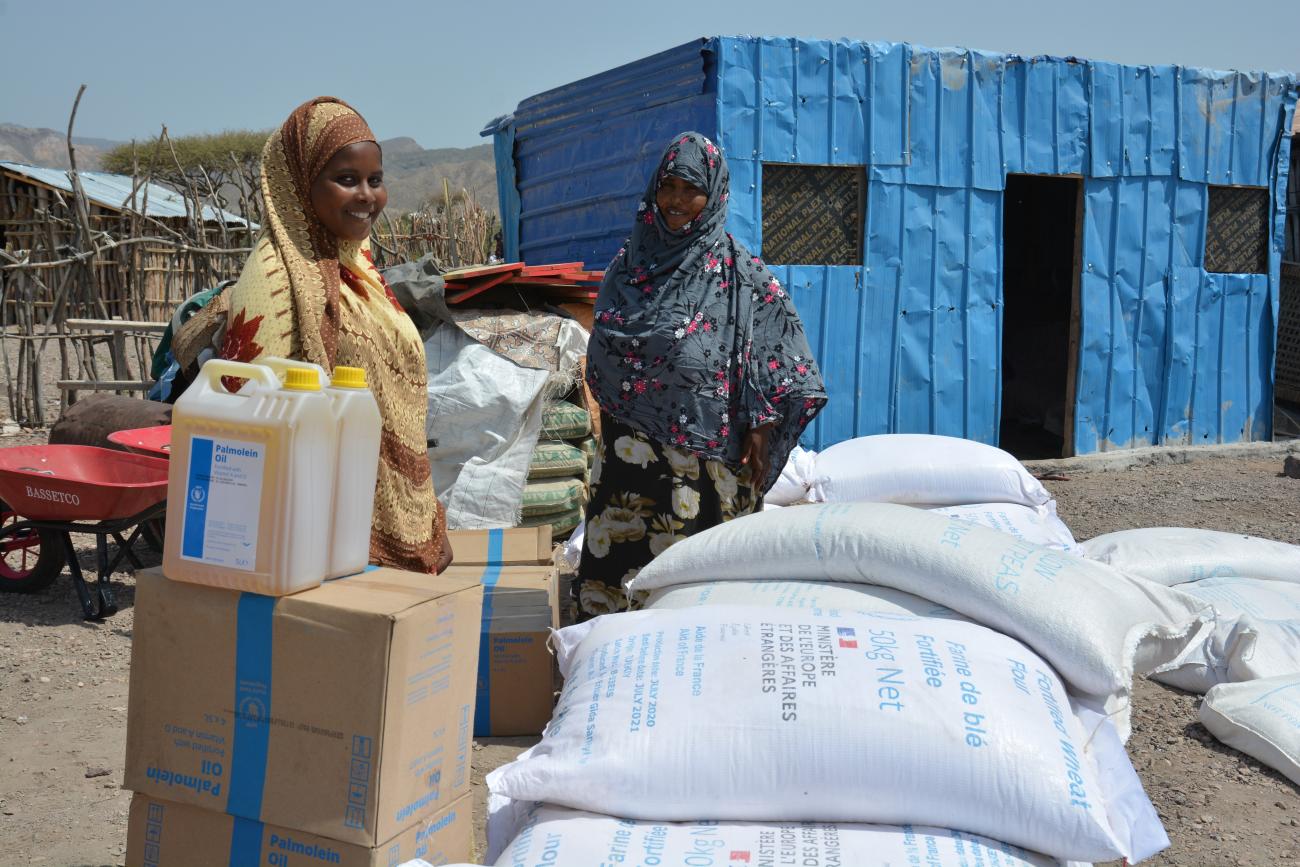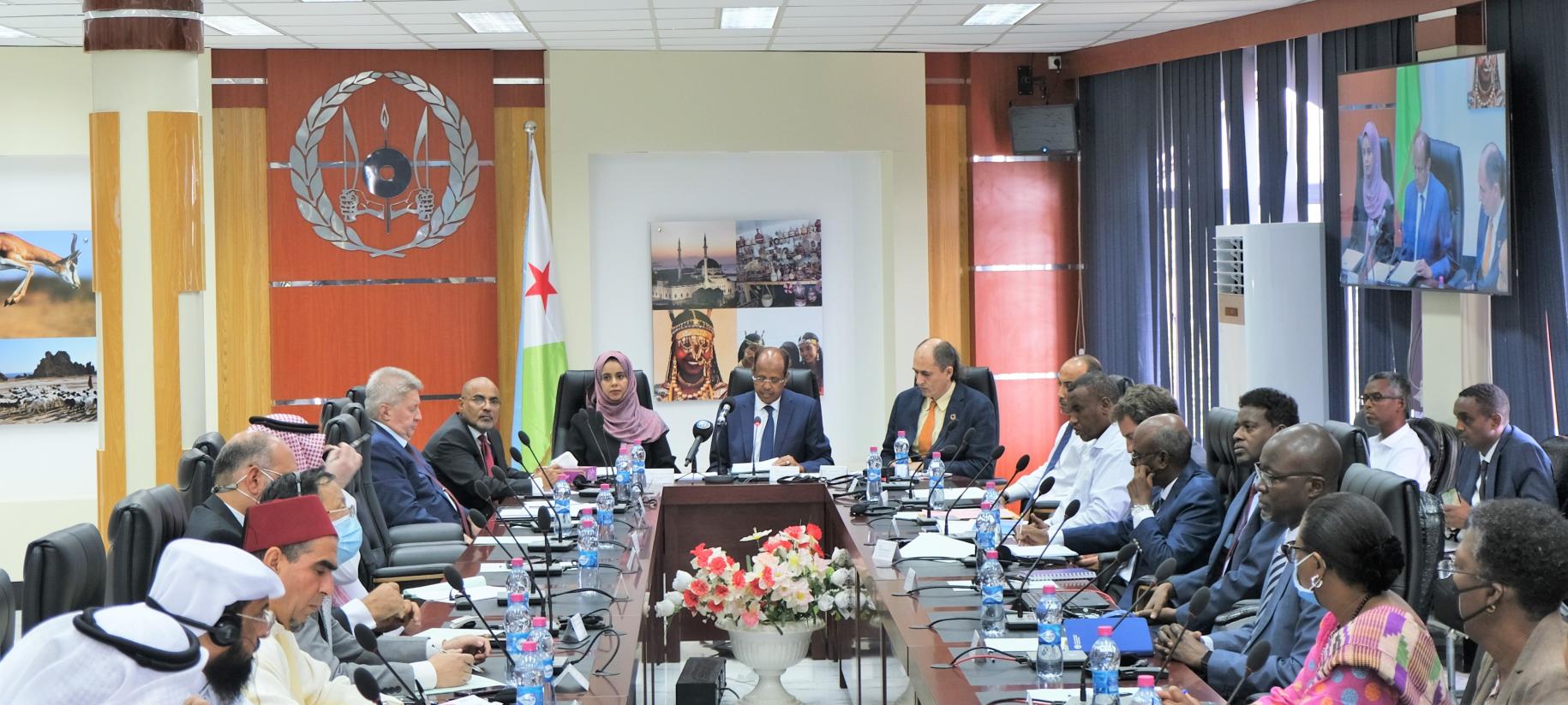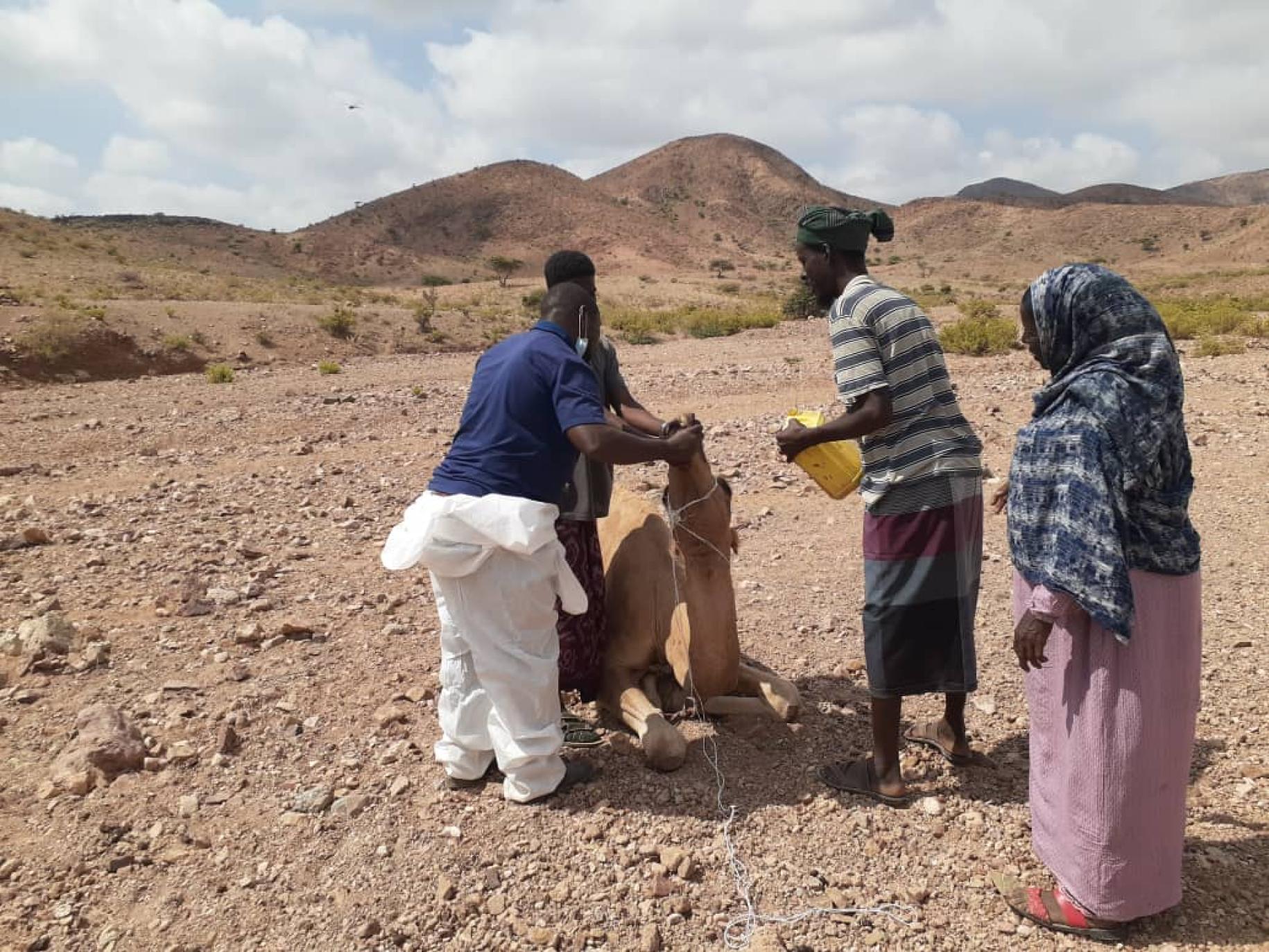Djibouti in Drought: A Forgotten Crisis?

A year ago, Djibouti found itself in the middle of a perfect storm. Facing one of the worst droughts in the Horn of Africa in over a century, over 160,000 (17% of the population) people struggled to cope with rising temperatures and increasingly arid lands. With over 90% of food imported into the country, the sharp spike in global food prices meant that even the little food which was available soon became unaffordable to most communities.
Leading the UN Country team here as the Resident Coordinator, I had the chance to see first-hand how families grappled with hunger and food insecurity on a daily basis. In August 2022, I visited Dorra, a village in the northern region of Tadjourah where I met local agro-pastoralists and saw how severely the drought was impacting their livelihoods. Many community members reported loss of cattle and shared their struggle to cope with the increase of prices. The poorest populations spend nearly 77 per cent of their household budget on food.
Sadly, a year later, the picture isn’t very different.
Djibouti seldom garners the kind of international attention usually given to its neighbors- Ethiopia, Somalia and Kenya. Yet the country’s experience living through cycles of drought and food insecurity offer immense lessons to the rest of the world.
At the start of April 2022, with another dry season looming, we knew as the UN, we had to act quickly and cohesively. Here are four main actions we jumped to undertake:
1)Firstly, launching an evidence-based response plan in close coordination with the government’s own appeal: We quickly created a multi-agency emergency response team that collected data on the levels of food insecurity and nutrition caused by the drought as well as water availability, but also its impact on livelihoods and, health and well-being. This data enabled us to prepare a response plan in coordination with the Djiboutian authorities and launch an appeal which led to securing US$ 2 million through the UN’s Central Emergency Relief Fund by the end of April 2022.

2) Secondly, ensuring collaboration during the emergency response: With eight agencies on the ground and with limited resources, we had to be agile and play to the strengths of each agency. We prioritized the needs of the population and quickly agreed on whose mandate was more relevant and needed for each sector. By the end of 2022, the UN provided emergency assistance to close to 100,000 people, including the most vulnerable populations in rural areas which were hardest hit.
This support, implemented jointly by WFP, UNICEF, FAO and the UNHCR included the provision of food assistance to the most vulnerable and ensuring water supply to almost 90,000 people. In addition, agencies also focused on protecting the livelihoods of the agro-pastoralist populations by providing life-saving health care for animals which benefited 44,000 people.
3) Thirdly, matching short-term efforts with resilience-building for the long-term:
The ongoing droughts are only a symptom of a larger climate issue. Djibouti and other countries in the Horn contribute less 1% to global emissions but are paying the heaviest price in lives and livelihoods. With rapidly worsening climate conditions, Djibouti has had to adapt faster than ever.
Through the joint program “Response to the Global Food, Energy and Finance Crisis” funded by the Joint SDG Fund in June 2022, UNDP and FAO in Djibouti led an assessment of the impact of drought and rising prices on the social, economic and environmental aspects, with the aim of paving the way to developing a long-term resilience strategy for food availability during crises.
Through this project, the UN was able to support the government’s capacity in data collection, inventory monitoring and price formation, as well as modernizing the domestic market regulatory framework. This in turn led to the amendment of multiple laws and decrees to promote a fair business environment and improve consumers protection. A smartphone application was created to publish and follow the real time evolution of market prices for staple foods which was very well received by both consumers and market regulation specialists. The project also led to establishing decentralized offices for Crisis and Disaster Management in the five regions of the country, working to strengthen the government’s rapid response capacity in rural areas, which are the most at risk.
FAO has also continuously strived to strength the capacities of nearly 10,000 agro-pastoralists, with trainings in the restoration of degraded lands and climate-smart agro-pastoral value chains, distributions of technical agricultural supplies and cattle health control as well as restocking efforts.

4)Finally, leaving no one behind and targeting those most vulnerable in the crisis:
According to UNHCR and OCHA, the country hosts over 30,000 refugees and asylum seekers- from Somalia, Ethiopia, Eritrea and Yemen. Some 49 per cent of them are children. Women, in particular, face a heavier burden from the impact of drought and other climate-related events.
The response plan had a specific focus on social protection which included psychosocial support to thousands of children and assistance to people with disabilities; cash transfers to over 2500 refugee women and girls to provide access to essential WASH items for their dignity and safety, as well as nutritional services to over 21,000 severely malnourished children and pregnant and lactating women. UNICEF also led efforts to improve the quality of the learning environment throughout the country by supporting the implementation of the national WASH-In-School strategy, and also improve access to schooling in the most remote areas, leading to nearly 800 children enrolling.
Further, projects such as the "Women's Economic Empowerment for Climate Resilience for an Inclusive and Greener Post-COVID-19"are supporting nearly 600 women in the regions of Ali Sabieh, Dikhil and Arta to learn new agricultural skills to boost their livelihoods.
Despite this, recovery for communities has been challenging. With crops, cattle and livestock lost and food prices still fluctuating, a lot hinges on the international community’s support, including through the Black Sea Grain Initiative which brings vital grain from Ukraine to the port of Djibouti and onward to the rest of the Horn.
We need stronger collaboration and sustained funding to tackle the most pressing needs of the moment: ensuring the food security of the most vulnerable populations with food and cash assistance, securing the livelihoods of agro-pastoralists to build up their resilience against climate change and upscaling Djibouti’s capacity to continue supporting refugees as well as the continuous flux of migrants crossing the country, and the host communities impacted by it.
We must deliver hope for the future with action today; the lives of the people of Djibouti depends on it.
This blog was written by the UN Resident Coordinator in Djibouti Jose Barahona with editorial support from UNDCO. For more information about the UN’s work in Djibouti, please visit Djibouti.un.org.













